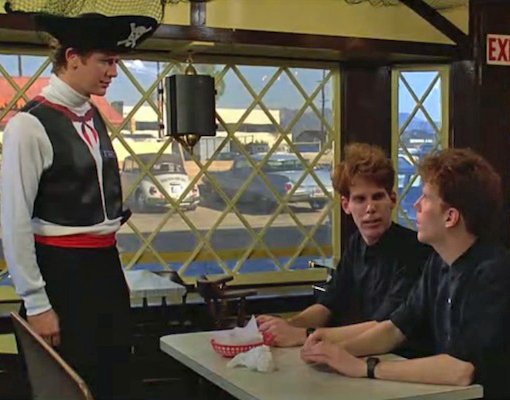
The general rule is that to be a success, you should do what you’re good at and not what you love. Thing is, if what you’re good at your job and you’re miserable, it might be time to make a job change. Staying in a high-paying job that no longer makes you happy will eventually take a toll on your mental health and can become the reason you’ll lose interest in your relationships and personal responsibilities. But there are a plenty of reasons to change jobs: your current job has no growth potential, you haven’t gotten a raise in years, etc. Whatever the reason is, your approach to how you change jobs can affect your stress levels when the time to write that lame “goodbye” email arises.
Also: Career Advice From 10 Movie Bosses
So while we can’t tell you the time is right to switch jobs— sheesh, do you want us to do everything for you? — we can provide a handful of things that can make the search and transition a little easier …
#1. REFINE YOUR COVER LETTER AND RESUME
Leave your cover letter and resume lifeless and generic, and you shouldn’t be surprised when you’re lumped in with the other lifeless and generic applicants. And with unemployment hovering near 7 percent, there are a lot of overqualified applicants gunning for the same job you may be under-qualified for.
So take a step back and think about how you want to frame your skills and experience — and then get creative. Don’t include a glitter bomb in there, but make the verbiage used and look reflect your personality. Just don’t forget to copy edit what you’ve written. The coolest resume on the planet will get trashed if you accidentally add a “t” before the word “it” in your copy.
Keep the cover letter short — a few paragraphs, tops — and write about why your skills are a fit with the position instead of what you think a hiring manager wants to read. And if you’re unsure what to write or you’re just a terrible righter writer, consider hiring a pro. Except to pay anywhere between $50 an a couple hundred for a resume revamp plus a couple rounds of edits.
Refining your cover letter and resume should be done before you decide to change jobs. You should never underestimate the importance of these documents as your cover letter and resume can make or break your chances in building a career in your 20s. How these documents are prepared and submitted can influence an employer’s decision of whether to schedule you for an interview or not.



